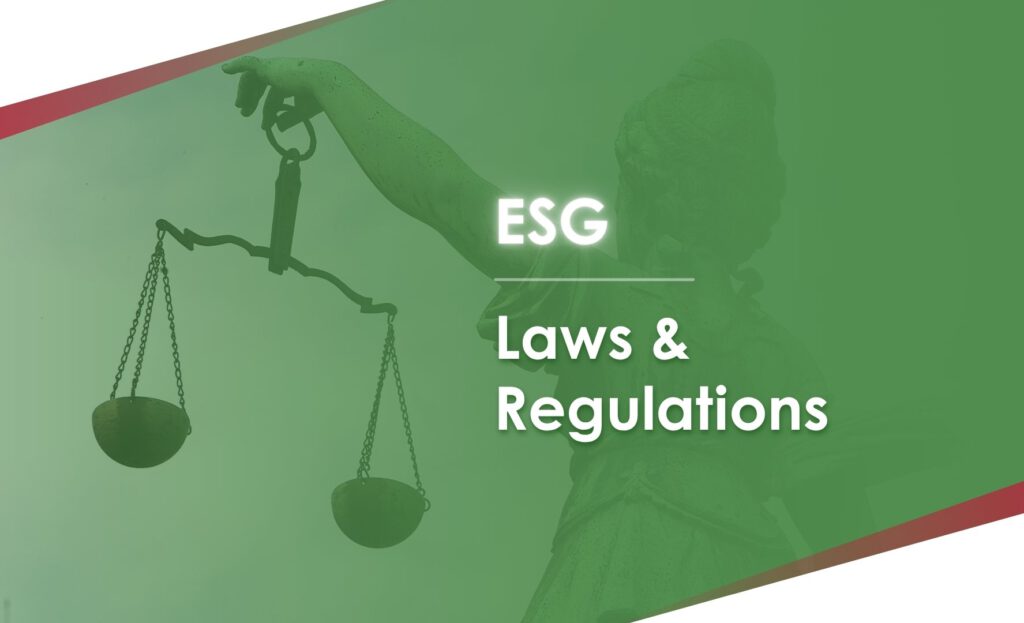The requirements are becoming more specific – and they no longer only affect large corporations. It is time for companies of all sizes to familiarize themselves with the legal requirements relating to environmental, social and governance issues.
What does ESG mean in concrete terms?
The three letters ESG stand for key sustainability criteria that companies are increasingly required to comply with by law and regulation:
- Environmental: CO₂ emissions, energy consumption, conservation of resources
- Social: Employee rights, diversity, health protection
- Governance (corporate management): Compliance, transparency, risk management
ESG is more than just a trend – it is a binding framework for sustainable business. For many companies, this means reporting obligations, adapting internal processes and technological support.
Current ESG requirements at a glance
Regulation around ESG is constantly growing. Some of the most important laws and regulations are:
- CSRD (Corporate Sustainability Reporting Directive)
- This EU directive will oblige significantly more companies to produce non-financial reports in future – including many SMEs. It replaces the previous NFRD and requires detailed ESG reports in accordance with fixed standards (ESRS).
- EU Taxonomy Regulation
It defines which economic activities are considered “environmentally sustainable”. The aim is to prevent greenwashing and direct investments towards sustainable areas. - Supply Chain Due Diligence Act (Lieferkettensorgfaltspflichtengesetz, LkSG)
In Germany, this law obliges companies to comply with human rights and environmental standards throughout their entire supply chain. - EU Green Deal and Fit-for-55
These overarching programs lead to further national and European requirements, such as emission limits, energy efficiency and CO₂ pricing.
What does this mean for companies in practice?
For many companies, the new regulations mean far-reaching changes. Not only because they are obliged to comply – but also because stakeholders such as investors, customers and business partners are increasingly demanding ESG standards.
This brings with it new challenges:
- Data collection and analysis: ESG data must be systematically collected, evaluated and reported – often from different departments or even from the supply chain.
- Transparent reporting: Reports must be comparable, verifiable and prepared according to clear standards.
- IT-supported processes: Without digital solutions and business intelligence platforms, ESG reporting is almost impossible to implement efficiently.

Why BI2run is the right partner for ESG reporting
As a full-service provider for business intelligence solutions, BI2run supports companies in implementing the increasing requirements in a structured and efficient manner:
- Automated data collection and processing
We provide a consistent data architecture to reliably collect relevant key figures – even from different sources. - Individual dashboards and reports
Customized ESG reports that precisely match the legal requirements – from carbon footprints to supply chain analysis. - Long-term support and technical support
We not only support you during the initial implementation, but also ensure that your ESG reporting meets the requirements in the long term.
Conclusion
ESG legislation is evolving rapidly – and it affects every company. Setting the right course today not only ensures regulatory compliance, but also sustainable competitive advantages.
With BI2run at your side, your entry into the ESG world will not only be legally compliant, but also data-driven, efficient and future-proof.








